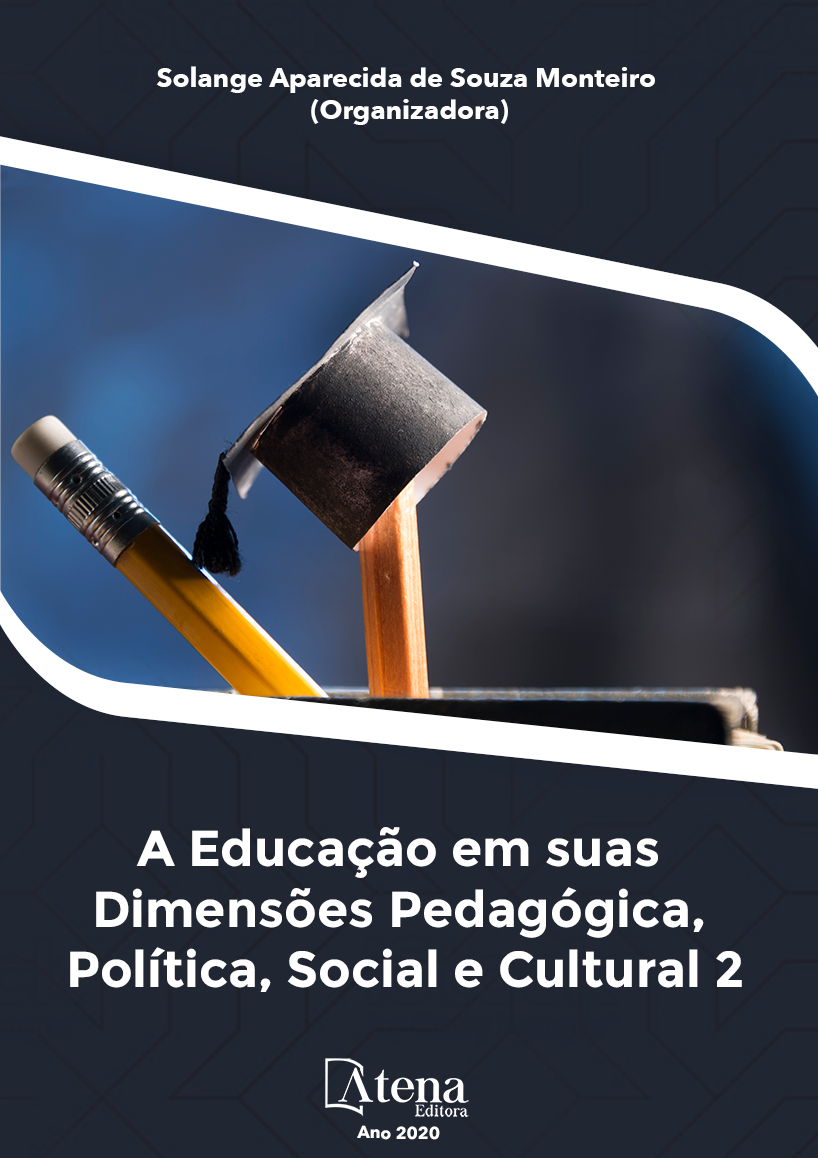
EDUCAÇÃO DO CAMPO E ÊXODO RURAL NO EXTREMO OESTE CATARINENSE: UMA TESE EM SETE ARTIGOS
O presente trabalho corresponde
a uma pesquisa de Doutorado desenvolvida
de 2014 a 2017 problematizando os fatores
que estimulavam o êxodo rural dos jovens
camponeses na região do Extremo Oeste
Catarinense. O objetivo principal buscou
estabelecer a contribuição da Educação para
a existência deste fenômeno. Percebeu-se que
as Políticas Públicas destinadas aos povos do
campo não foram suficientes para diminuir o
êxodo rural. Diante desta situação, muitas das
pequenas propriedades rurais com produção
diversificada e com base na Agricultura Familiar,
estão fadadas a desaparecerem. Podendo
ser absorvidas pelo latifúndio com vistas
ao mercado exportador e, por conseguinte
ameaçando a Segurança Alimentar. Quanto
aos principais autores que embasaram este
estudo, foram considerados: Milton Santos
(1992; 2004) através dos conceitos de Global/
Local e Tempo/ Espaço na vida dos jovens;
como também Arroyo (1999), Brandão (1983)
e Caldart (2004) no sentido de nos ambientar
quanto à modalidade da Educação do Campo. A
tese que serviu de base foi estruturada em sete
artigos que são independentes, mas também
se complementam. O método empregado
foi o quanti-qualitativo, utilizando para isso,
a pesquisa bibliográfica, Estado da Arte,
Entrevistas, Teoria Fundamentada nos Dados
para análise dos resultados, entre outros. A
investigação proporcionou compreender que
os jovens migram com destino às regiões
urbanizadas, motivados não só em busca de
melhores condições econômicas, mas também
incentivados por questões socioculturais como
a falta de reconhecimento dos povos do campo.
EDUCAÇÃO DO CAMPO E ÊXODO RURAL NO EXTREMO OESTE CATARINENSE: UMA TESE EM SETE ARTIGOS
-
DOI: 10.22533/at.ed.28320130210
-
Palavras-chave: Êxodo Rural. Educação do Campo. Extremo Oeste Catarinense. Sociocultural. Tese.
-
Keywords: Rural exodus. Field Education. Far West of Santa Catarina. Sociocultural. Thesis.
-
Abstract:
The present work corresponds
to a PhD research developed from 2014 to
2017, discussing the factors that stimulated the rural exodus of young peasants in
the Far West region of Santa Catarina. The main objective sought to establish the
contribution of education to the existence of this phenomenon. It was realized that
the Public Policies for the rural people were not enough to reduce the rural exodus.
Faced with this situation, many of the small farms with diversified production based on
family farming are bound to disappear. They may be absorbed by the landowners for
export purposes and thus threatening food security. The main authors that supported
this study were: Milton Santos (1992; 2004) through the concepts of Global / Local
and Time / Space in young people’s lives; as well as Arroyo (1999), Brandão (1983)
and Caldart (2004) in order to get us acquainted with the modality of Rural Education.
The underlying thesis was structured into seven articles that are independent but also
complement each other. The method used was the quantitative and qualitative method,
using the bibliographic research, State of the Art, Interviews, Grounded Theory to
analyze the results, among others. The research provided understanding that young
people migrate to motivated urbanized regions not only in search of better economic
conditions, but also encouraged by sociocultural issues such as the lack of recognition
of rural peoples.
-
Número de páginas: 14
- LEONIDAS ROBERTO TASCHETTO
- JOSÉ FABIANO DE PAULA


